Layout studio Envisions has labored with engineering corporation Imat-Uve to make a recycled textile from made use of garments normally regarded unfit for recycling.
Their textile, called Fibers Unsorted, is a specialized fabric designed from blended-fibre outfits that would in any other case have absent to landfill. Alternatively, it is processed into a solution that is durable and high-excellent sufficient to be used in the automotive field, amid some others.
Even while recycled fabrics have come to be much more commonplace, textiles are hard to recycle and the bulk of such waste goes into landfill.
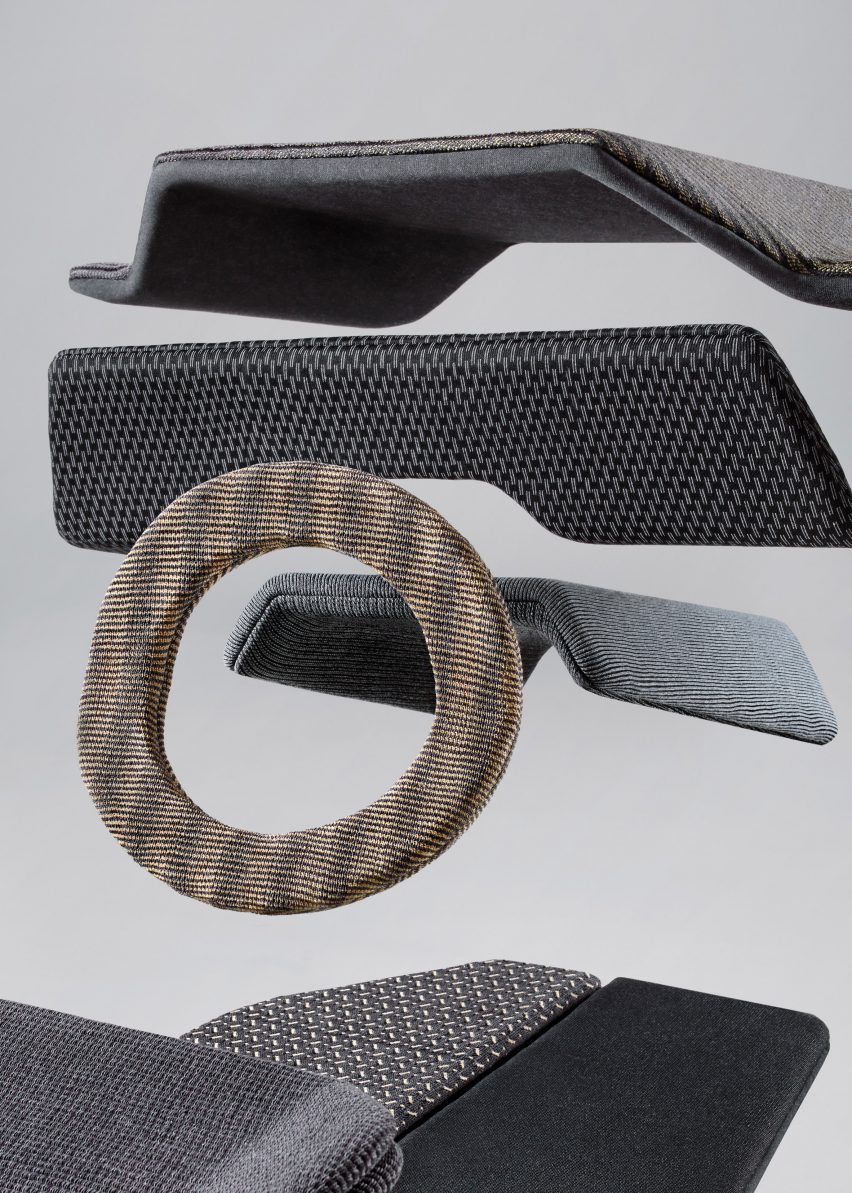
“The problem that Fibers Unsorted set was to acquire a top quality yarn out of the big waste streams of textile that are nonetheless nowadays only down-cycled into a weak insulation substance or get burned or end up in a landfill,” Envisions director Sanne Schuurman advised Dezeen.
“We want to continue to keep this useful resource as extended as attainable in its cycle and lengthen its life time to build beneficial merchandise out of it.”
The difficulty in recycling textiles will come because they include many sorts of fibres, resources, colours and good quality amounts, all jumbled jointly and “unattainable to sort industrially”, in accordance to Envisions.
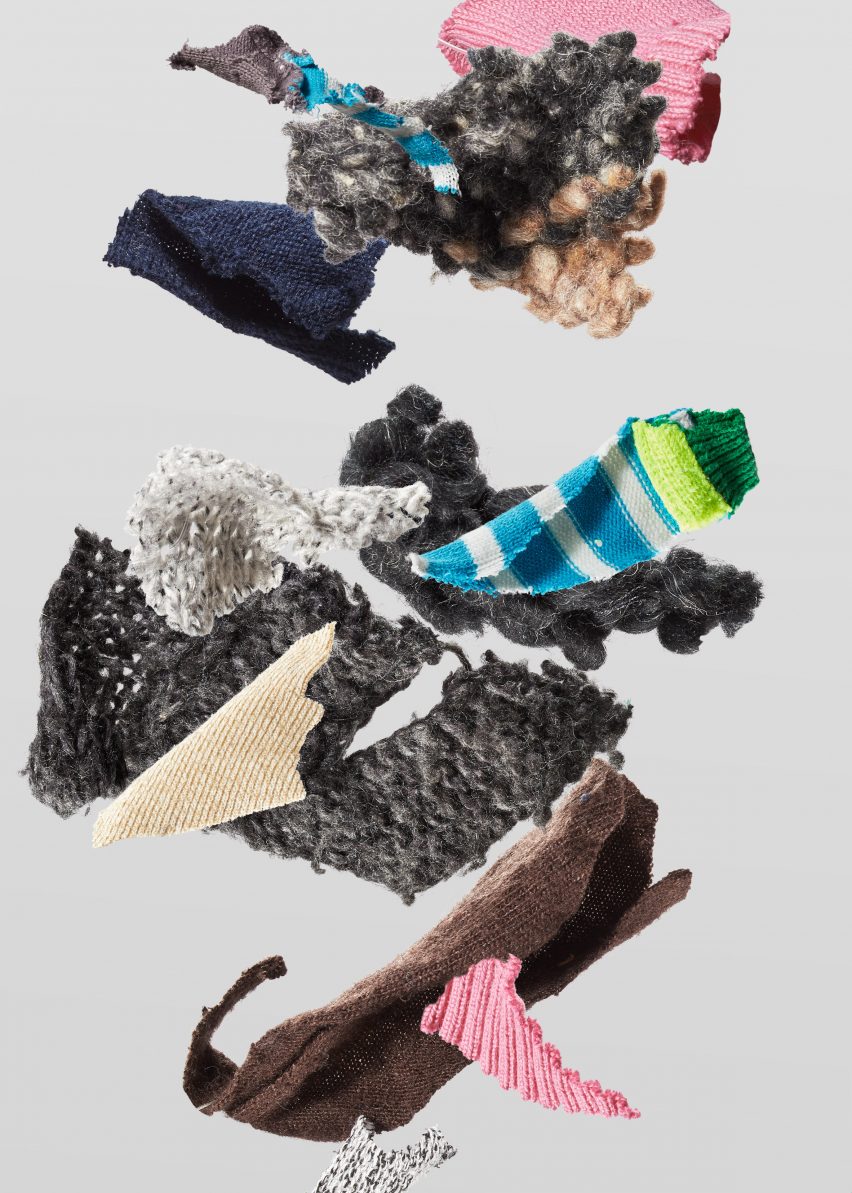
The Fibers Unsorted challenge began with growth and engineering enterprise Imat-Uve, which commenced studying approaches of deconstructing blended textiles into usable fibres in 2013, environment out to spin them into yarns that could contend with their predecessors in phrases of quality.
The textiles they utilized are mixed on a fibre level – for instance, blends with cotton, polyester and elastin.
Working with a number of production partners and industry experts, Imat-Uve created a strategy that concerned treating the fibres meticulously to preserve them as long as attainable with the aim of ending up with a equivalent fibre size to virgin resources these kinds of as cotton.
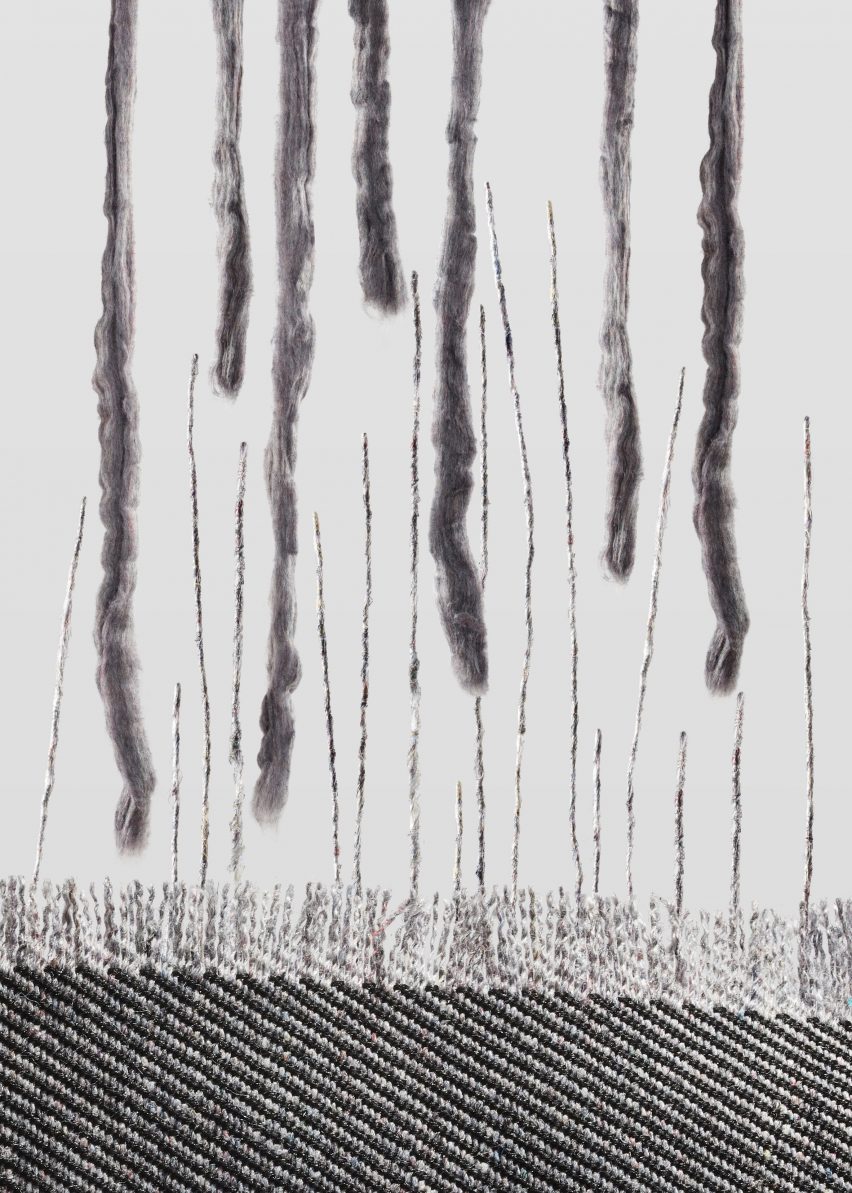
In its approach, practically all clothes can be utilised, with only all around 15 for every cent of fibres getting filtered out, usually since they are also small to make a top quality yarn.
A number of fibres are not ideal for recycling at all, this kind of as carbon fibre, which oxidises and triggers troubles in the equipment.
Imat-Uve’s technique also has the reward of demanding no chemical processes, so it is much more sustainable than other similar initiatives.
Envisions arrived aboard the challenge to turn the yarn into eye-catching textiles and existing tangible apps.
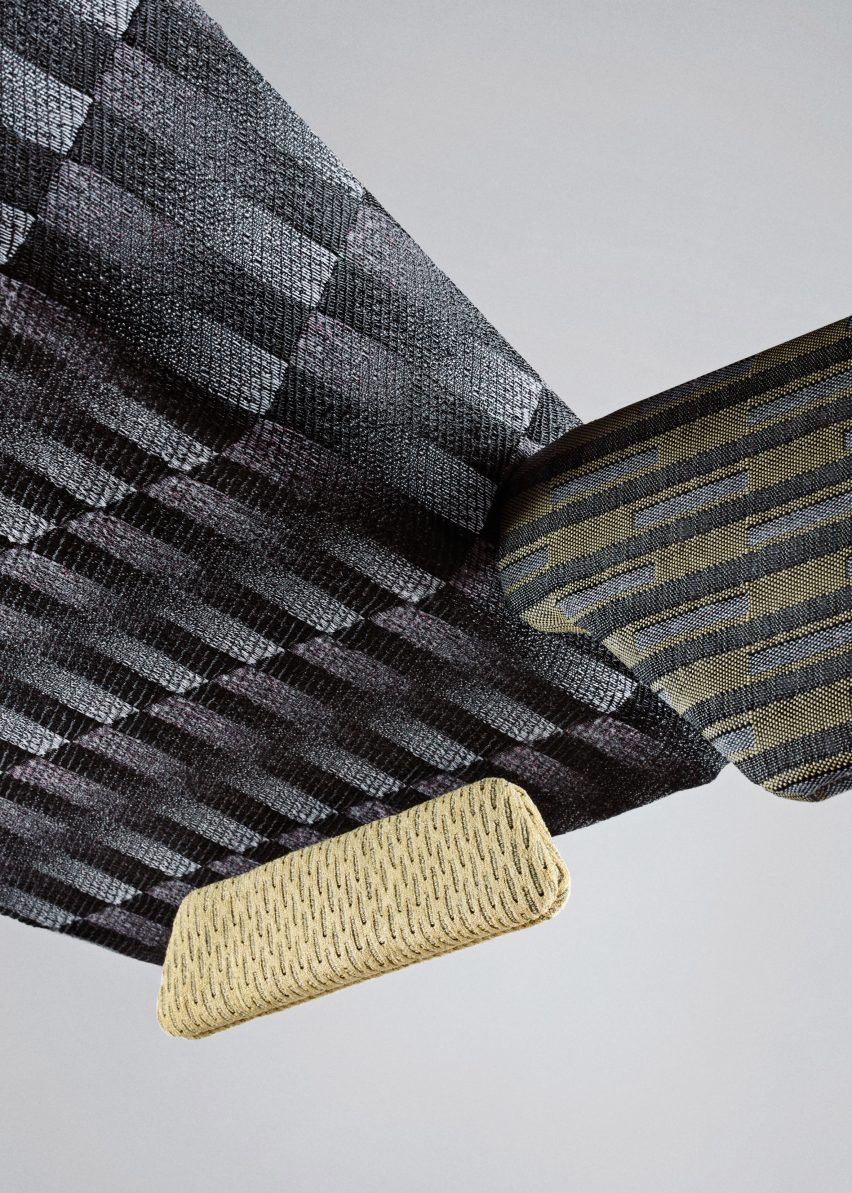
The yarn it been given was gray and unrefined, but the designers designed it into a collection of textiles with various textures, designs and colour palettes.
To accomplish this task they extra in some colored recycled polyester yarn, but they constrained it to 20 for every cent of the textile and usually applied Imat-Uve’s yarn for the weft.
Envisions also designed an installation employing the textiles that was proven at Dutch Layout Week in 2021 and may well make further more appearances in 2022.
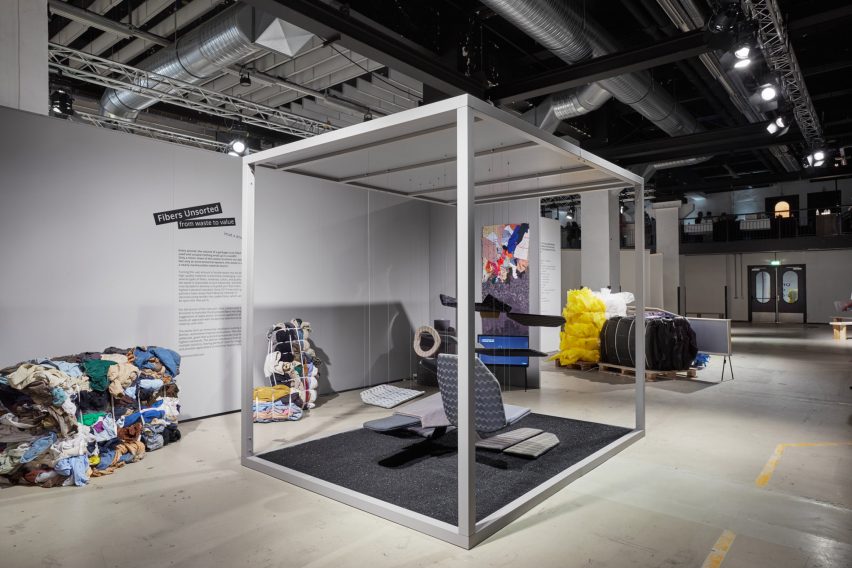
The installation displays the Fibers Unsorted materials used to hanging summary objects that in their condition and placement resemble a disassembled car or truck.
“While hinting at several apps and usages, the summary set up leaves a great deal of place for imagination and possible programs in industries beyond automotive,” said Envisions.
The design studio said it selected to concentrate on the automotive business due to the fact its components must satisfy the optimum industrial expectations, but the textile could also be used in home furniture structure, upholstery and flooring.
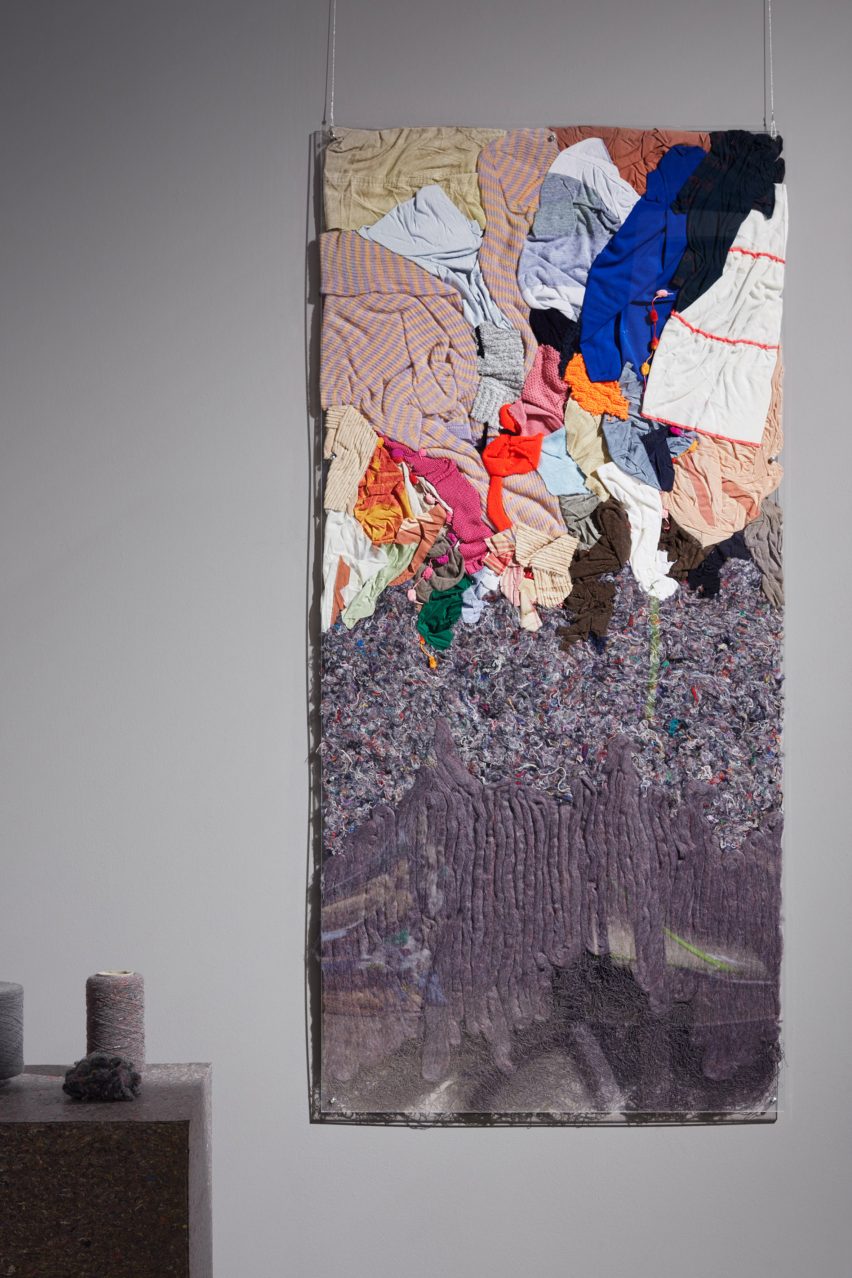
Envisions is a Dutch studio that received the Dezeen Award for rising designer of the year in 2018. It is a collective founded by Style and design Academy Eindhoven graduates, bringing collectively a team of a lot more than 20 multidisciplinary creatives.
Its earlier tasks have integrated a paving method for the city of Eindhoven and will work checking out techniques of slicing into, printing on and reworking wood.






More Stories
Gross response to woman’s viral gymnasium bra are unsuccessful: ‘Wear clothes’
Ja’Marr Chase, 7-Eleven crew up for apparel collection pursuing viral tweet
A beginner’s tutorial to Chicago’s second-hand garments outlets